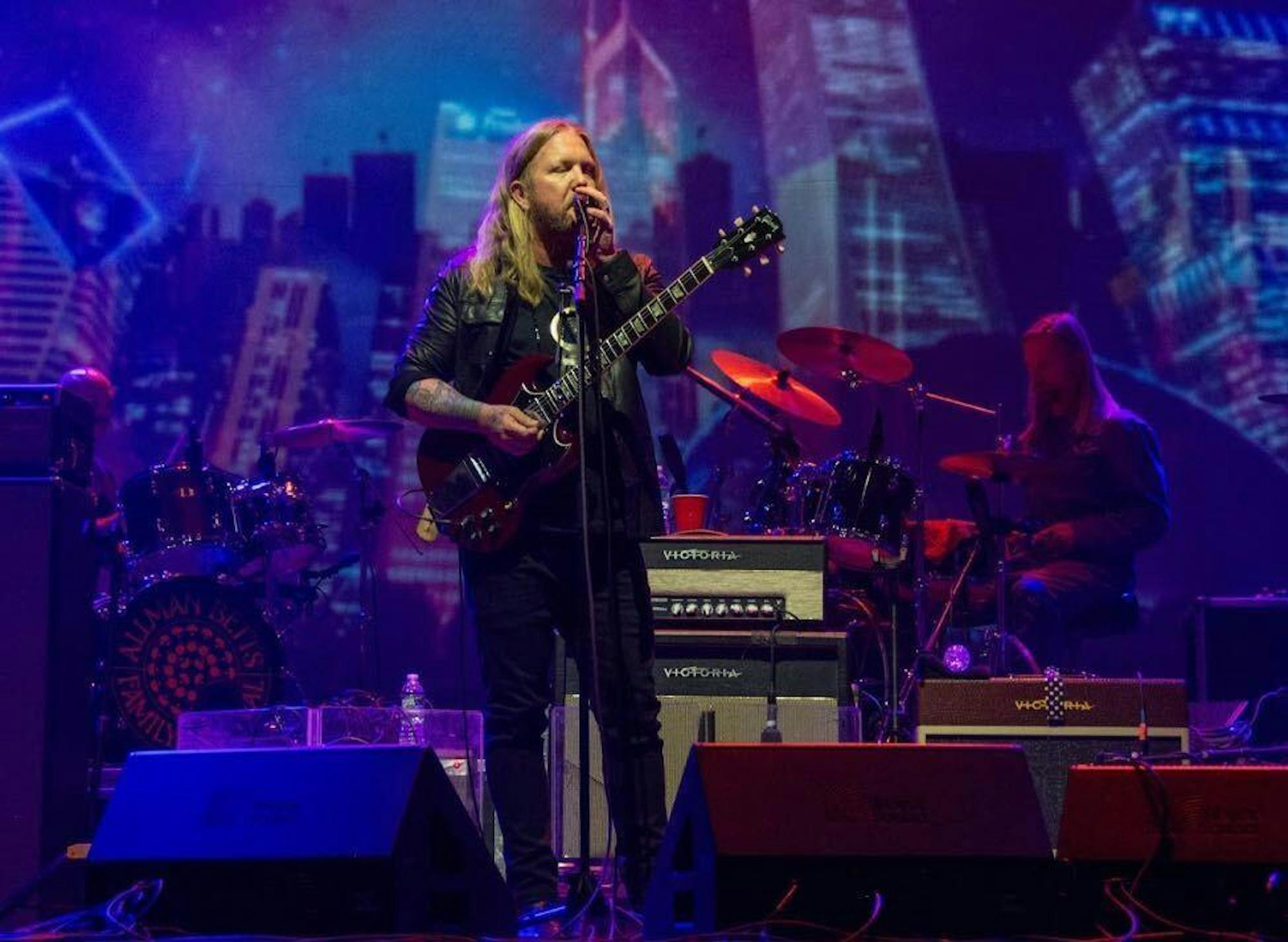The enduring music of the Allman Brothers Band lives on in the Allman Betts Family Revival tour, which made a stop at the Orpheum on Friday. The tour is an annual event founded seven years ago by Devon Allman to celebrate the life of his father Gregg Allman, one of the two brothers who gave their name to the illustrious ’70s band. This year, the show was organized by Devon Allman and Duane Betts, son of band member Dickey Betts, to celebrate the music of both of their fathers.
Playing almost exclusively Allman Brothers music runs the risk of becoming a tribute show by a cover band, and perhaps the greatest success of the band was their ability to avoid this fate. While they played all the familiar hits such as “Melissa” (1972), and “Ramblin’ Man” (1973), the musicians brought an energy that continued the spirit of the Allman Brothers. Even though the band’s well-loved records allow their music to live on, the jam-band nature of the group means that the true Allman Brothers experience rests in their live shows. Being over 50 years out from the height of the Allman Brothers fame makes reviving this live experience a tall order, but if anyone could do it, it would be the musicians in the Allman Betts Family Band.
In addition to the frontmen being the sons of founding members of the Allman Brothers, the Revival featured a wide array of world-class musicians who either performed with the Allman Brothers or were influenced by their music. What results is a collaboration of legends brought together to celebrate the music of the Allman Brothers. The long list of notables includes Anders Osborne, Luther Dickinson, Cody Dickinson, Jimmy Hall, Jackie Green, Sierra Hull, Ally Venable, Larry McCray, Orbi Orbinson, Devon Allman, Duane Betts and Tal Wilkenfeld.
Each song of the nearly three-hour-long performance switched between featuring one or two of these guests, resulting in an experience that felt less like a concert and more like an entire festival. This constant rotation of virtuosic musicians created a night of some of the best music-making, improvisation and soloing that this reviewer has heard.
While every note played and every musician who played on Friday is worthy of being written about, unfortunately brevity demands a focus on just the highlights. While no surprise given his musical background, throughout the night singer and harmonica player Hall stole the show. While the show mostly focused on improv, whenever a song returned to established lyrics, it was always Hall who sang them best.
Tal Wilkenfeld on bass was a star musician for the entire night with an especially notable solo opening, “Whipping Post” (1969). Among the litany of guitar solos, moments by Devon Allman, Duane Betts and McCray stood out. Devon’s greatest moment was found in his nearly three-minute solo on his father’s song, “Dreams” (1969). The song also showcased Devon’s heartfelt, bluesy singing. Duane shined on his solo on “In Memory of Elizabeth Reed” (1971), a song written by his father, Dickey. The hook of the song centers on the transposition of the theme from A minor to C minor, two harmonically distant keys. Duane did well to navigate these transpositions in his solo while building a compelling musical narrative ending in a face-melting conclusion.
While it likely proves a subjective and flawed effort to compare the solos of such talented musicians, McCray’s feature on “Soulshine” (1994) was among the best of the night. While not as flashy as others, his soulful phrasing and understated melodic playing created a mature and memorable musical statement. The quality of McCray’s bluesy singing on “Soulshine” even rivaled that of Hall.
With so many notables playing such incredible music, noting their excellence and achievement could indefinitely go on. But the real impact of the show is not based on the musicians virtuosity, but rather their ability to cultivate human connection. The audience was overwhelmingly original Allman Brothers fans from the ’70s, and being able to hear a continuation of the Allman Brothers in the year 2023 clearly meant the world to them. For the musicians, such a large collaboration took the character of a family reunion, bringing together players from all over who normally would not have the time to connect with each other.
For old fans of the Allman Brothers, the Revival tour allows them to live through one more great concert. For younger fans just discovering the famous ’70s Southern rock band, Devon and Duane provided a truly special opportunity to experience some of the best blues jamming on some of the best written songs in the world.






